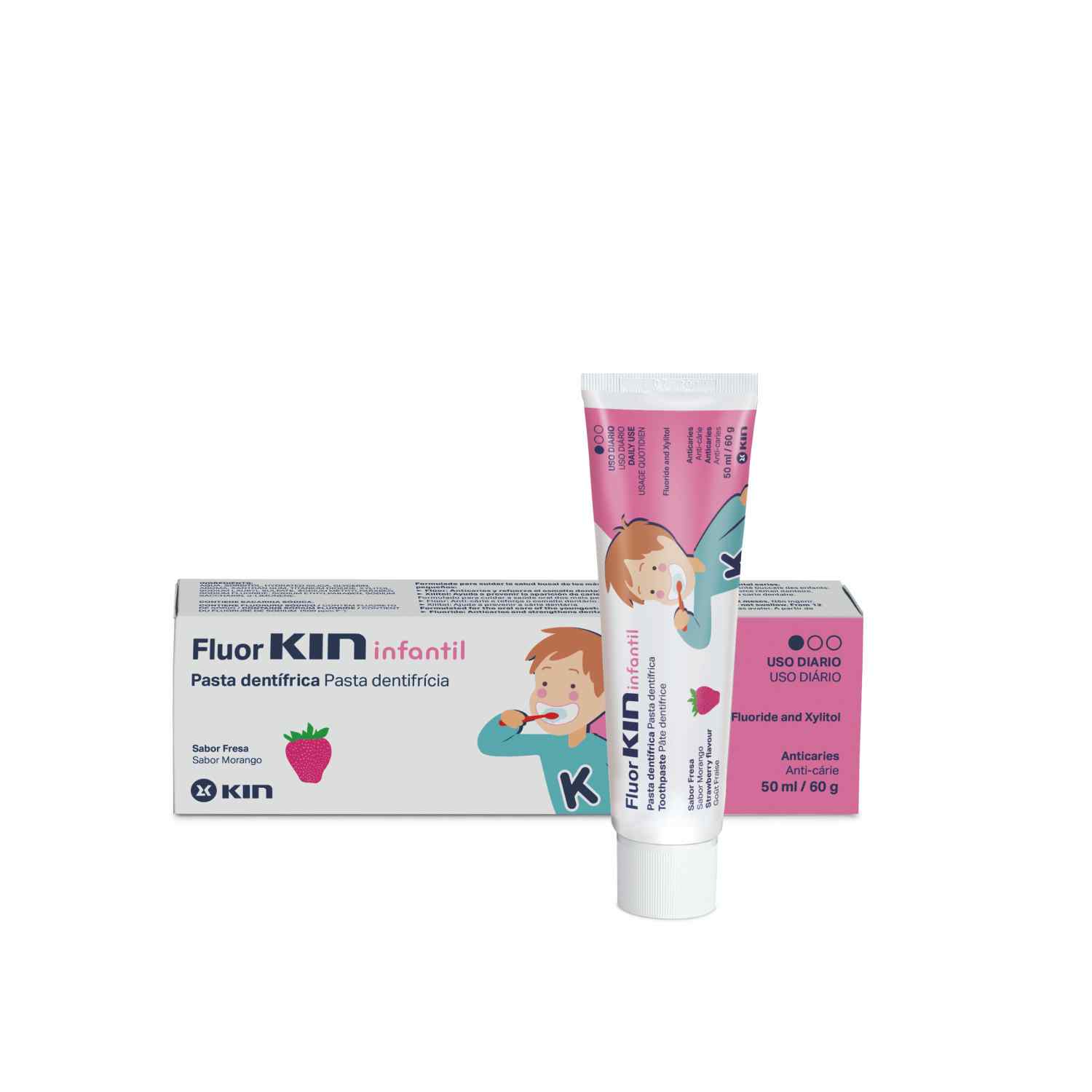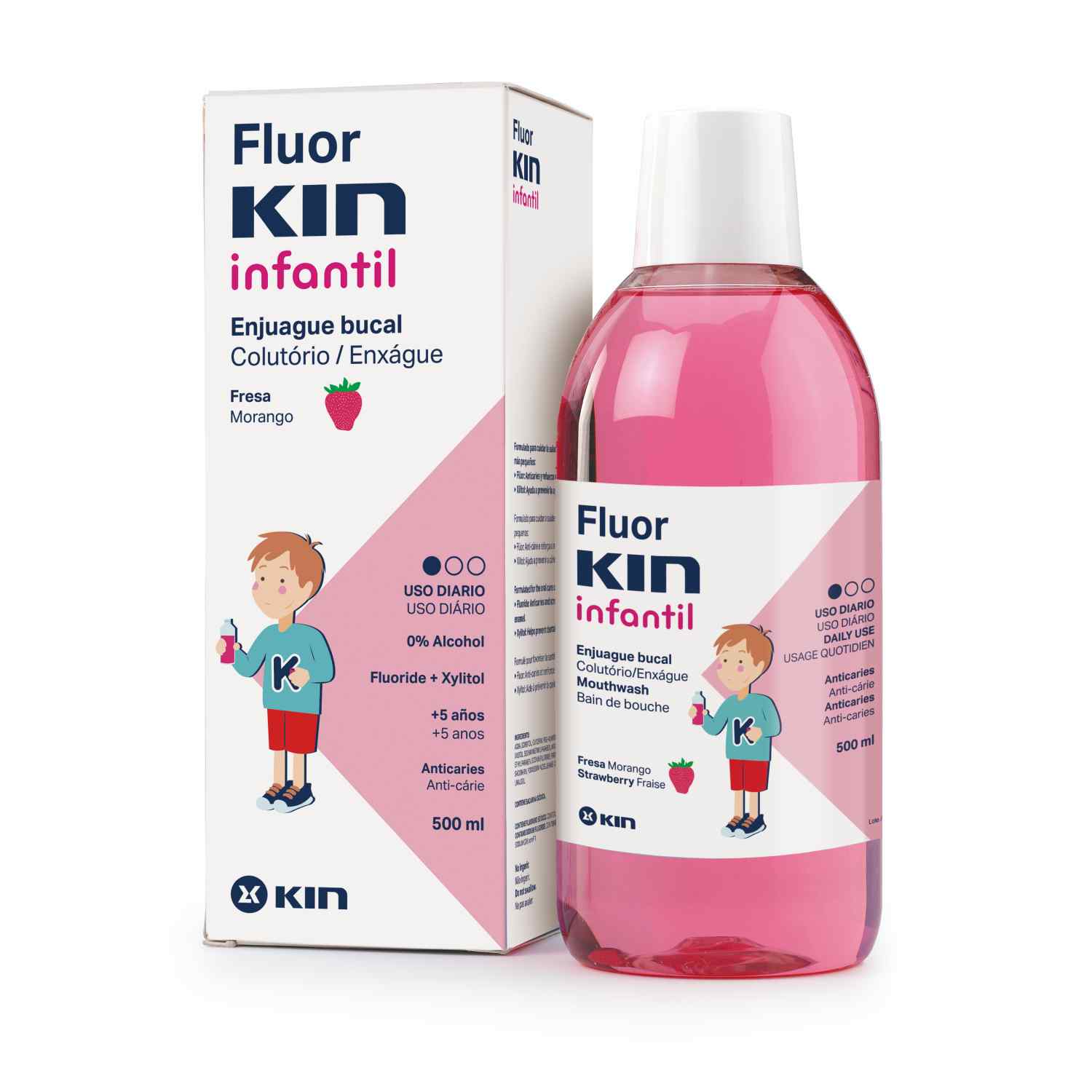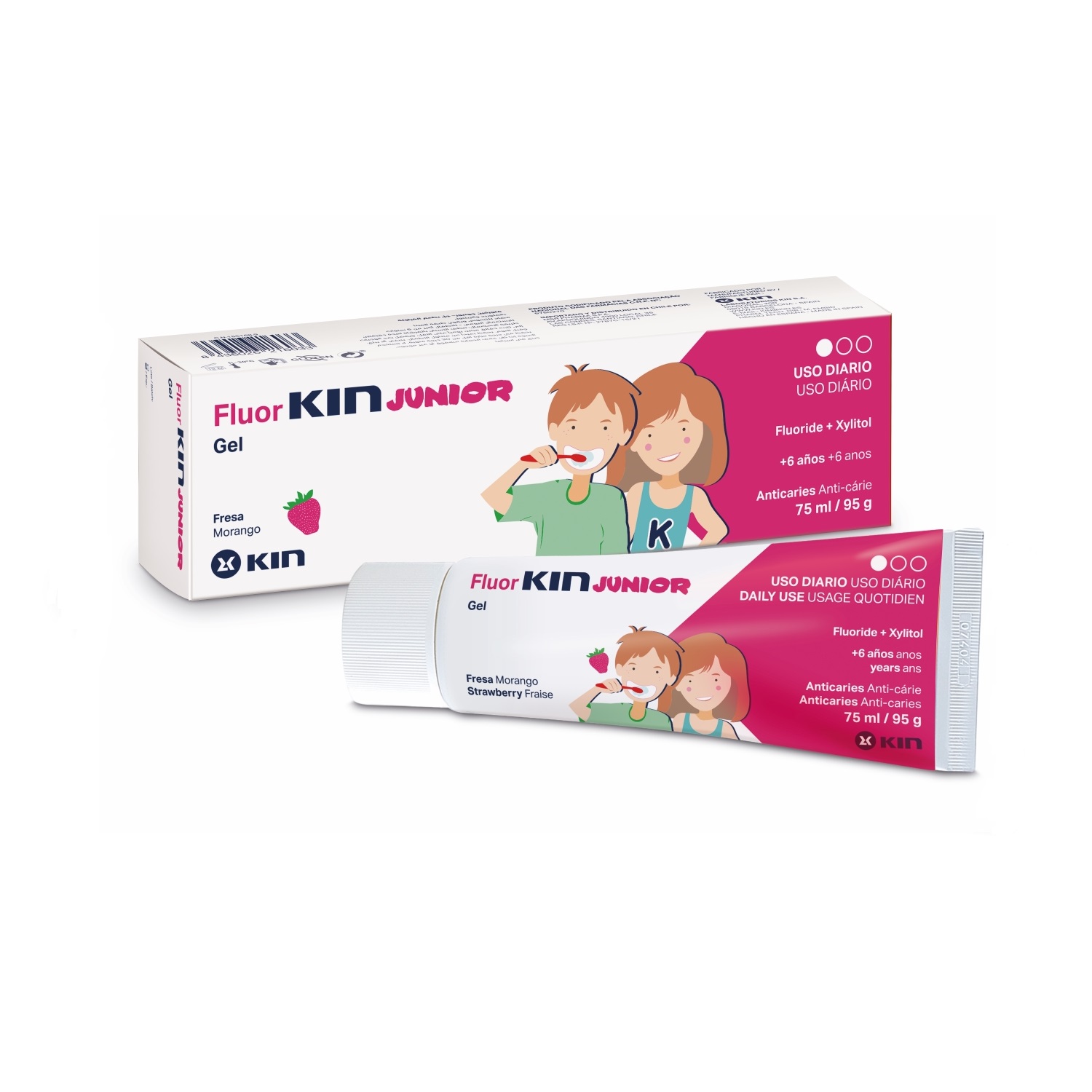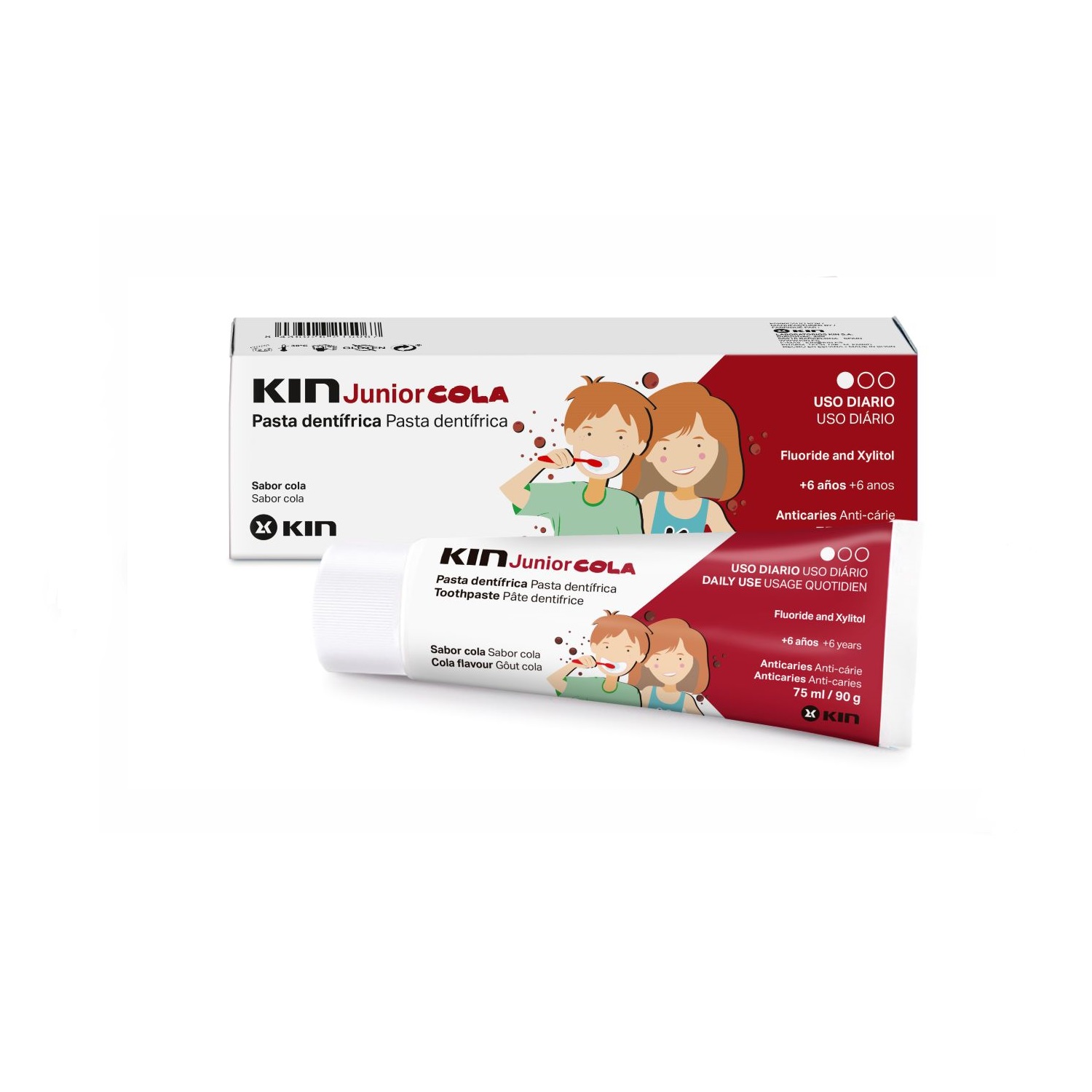Good hygiene habits are acquired from an early age. It is the responsibility of parents to start instilling good oral hygiene in their children, with all the necessary steps to take care of baby teeth. Discover with this oral hygiene guide for children how to teach the little ones at home to maintain healthy teeth and gums.
KIN CONTENT GUIDES
Children's oral hygiene guide
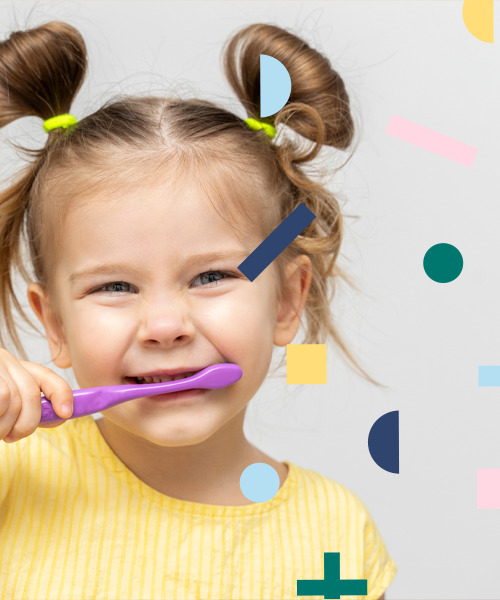
1. Oral hygiene tips for children
Children's oral hygiene requires different guidelines to those used by adults. Children's milk teeth are more delicate, so it is necessary to take extreme care to ensure that children's permanent teeth form correctly.
What type of toothbrush is best for each age? Can they use an electric toothbrush? Which children's toothpaste to choose? Do children need to floss their teeth? On the KIN blog you will find the best oral hygiene tips for children, adapted for parents according to the recommendations of experts in paediatric dentistry.
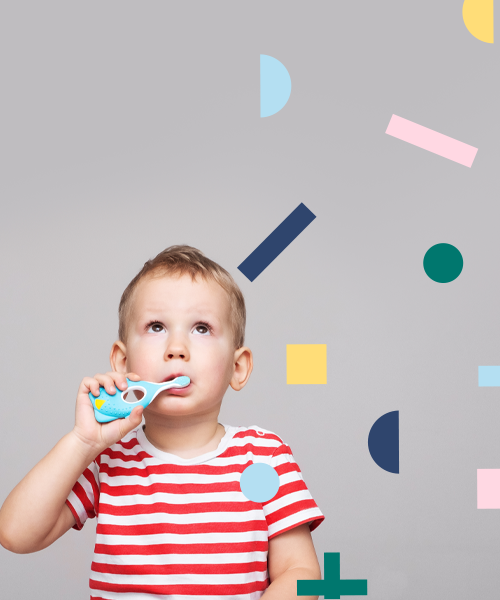
2. Toothbrushing
Even before the first milk tooth erupts, parents can begin to take care of their baby's gums. Brushing children's teeth should be done from a very early age, choosing at all times the accessories and the most appropriate technique to ensure correct cleaning without risk to the health of the little ones.
There are different types of children's toothbrushes, as well as electric toothbrush heads adapted to children. We tell you which one to choose at each stage of development, and how to make a simple but effective brushing technique for children of different ages, step by step.
Read more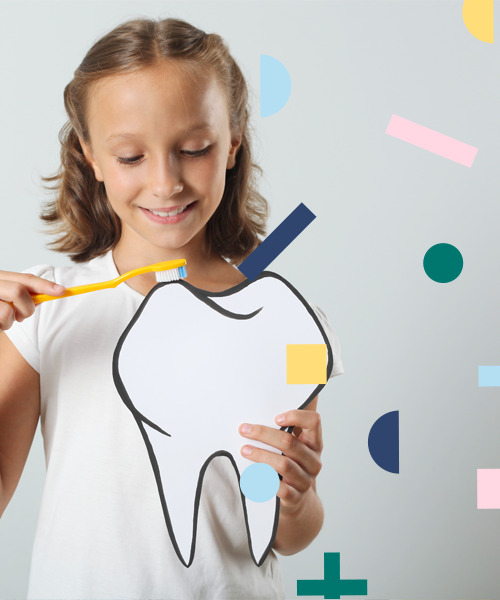
3. The importance of fluoride in children's oral hygiene
fluoride is one of the most important ingredients in toothpaste. In addition to protecting teeth by strengthening the enamel, it also prevents plaque by keeping plaque-forming bacteria at bay.
This compound is highly recommended for children, as both baby teeth and permanent teeth need extra protection. But at what age can toothpastes with fluoride be used for children? What are the right amounts of fluoride for children? Which toothpaste to choose for which age group? We analyse the advantages and risks of toothpastes with fluoride for children.
Read more
Your KIN must-haves:
Find us at:
You can buy our products in your nearest pharmacy.
Find us in your trusted online store.

5. Children's Diet and Oral Hygiene
Food plays a very important role in the care of teeth and gums. While there are some foods that help protect teeth, keeping them healthy and strong, many others are responsible for the vast majority of damage that occurs in childhood, such as the dreaded cavities.
We analyse which foods are good for teeth, which help remineralise enamel, make gums stronger and prevent tooth decay. We also find out which foods children should avoid, as well as different guidelines for healthy eating in childhood that have a positive influence on the formation of stronger teeth.
Read more
6. Dental Hygiene Habits
The lack of correct dental hygiene habits in children could lead to the premature loss of teeth or different health problems that affect the formation of permanent teeth. Instilling the necessary guidelines so that children learn to take care of their oral hygiene is the job of dental experts and parents.
Daily brushing, choosing a good toothbrush and the right toothpaste, learning to use mouthwash and dental floss, regular visits to the dentist, and many other guidelines are the basis of healthy teeth for life. Do you want to know more recommendations? Read on.
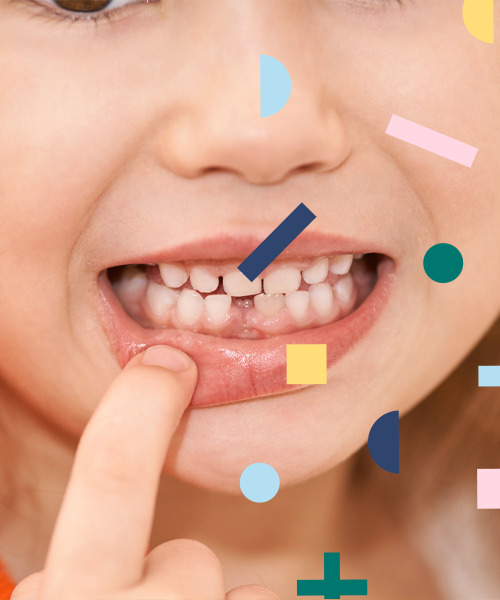
7. Stages of Dental Development
Do you know at what age baby teeth start to come in? What is the order in which children's teeth appear? What care do children's teeth need at any given moment? When do they fall out so that the permanent teeth can come in?
Caring for the primary dentition and permanent teeth in infancy requires very different guidelines. The rate of growth of each of these teeth is often similar in children, making it easier for parents to implement some tips and remedies to ease the discomfort of tooth eruption in babies and the protection of teeth and gums in children.
Read moreFind your nearest KIN pharmacy
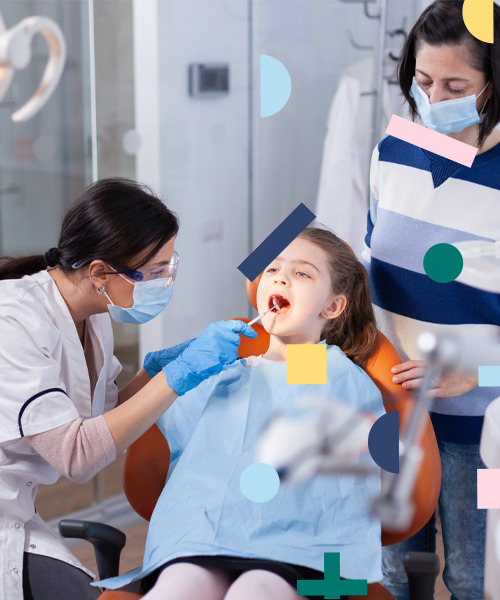
8. When to have your first dental check-up?
It is never too early to visit the dentist for the first time. In fact, considering the average value, children have their first dental check-up too late. As soon as the first tooth erupts, it is important for children to visit the dentist. How do you know when your child is ready for this?
Some experts recommend waiting until the child's teeth are complete before the first dental check-up, at approximately 3 years of age. In this way, the child will adapt better to the consultation and any health or morphological problems will be detected early at this critical stage. From then on, it is important to return to the dentist every 6-12 months, in order to make a good control of the child's oral health, and to guide parents on correct child hygiene habits.
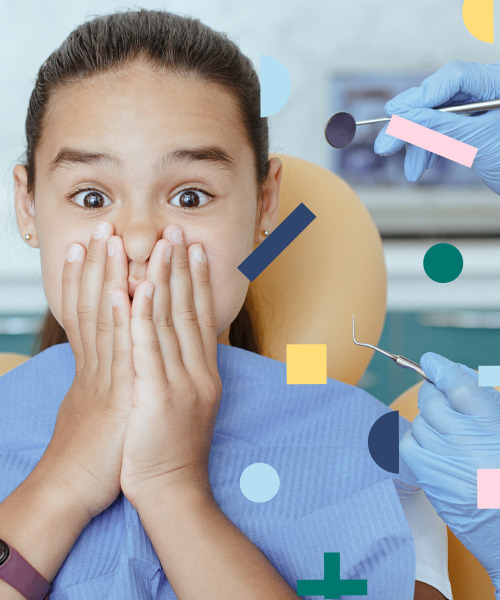
9. Fear of the dentist
Is your child afraid of going to the dentist? Do you know what causes this odontophobia in most cases? This is a problem that must be solved urgently so that children can have their dental check-ups correctly.
Discover the best tips for children to overcome their fear of the dentist, and how to act correctly to make the visit more bearable. These same tips are also very useful for adults - super easy to do!
Protect the dental health of the little ones at home with the best guides and advice on children's oral hygiene from KIN.
Read moreBIBLIOGRAPHY

